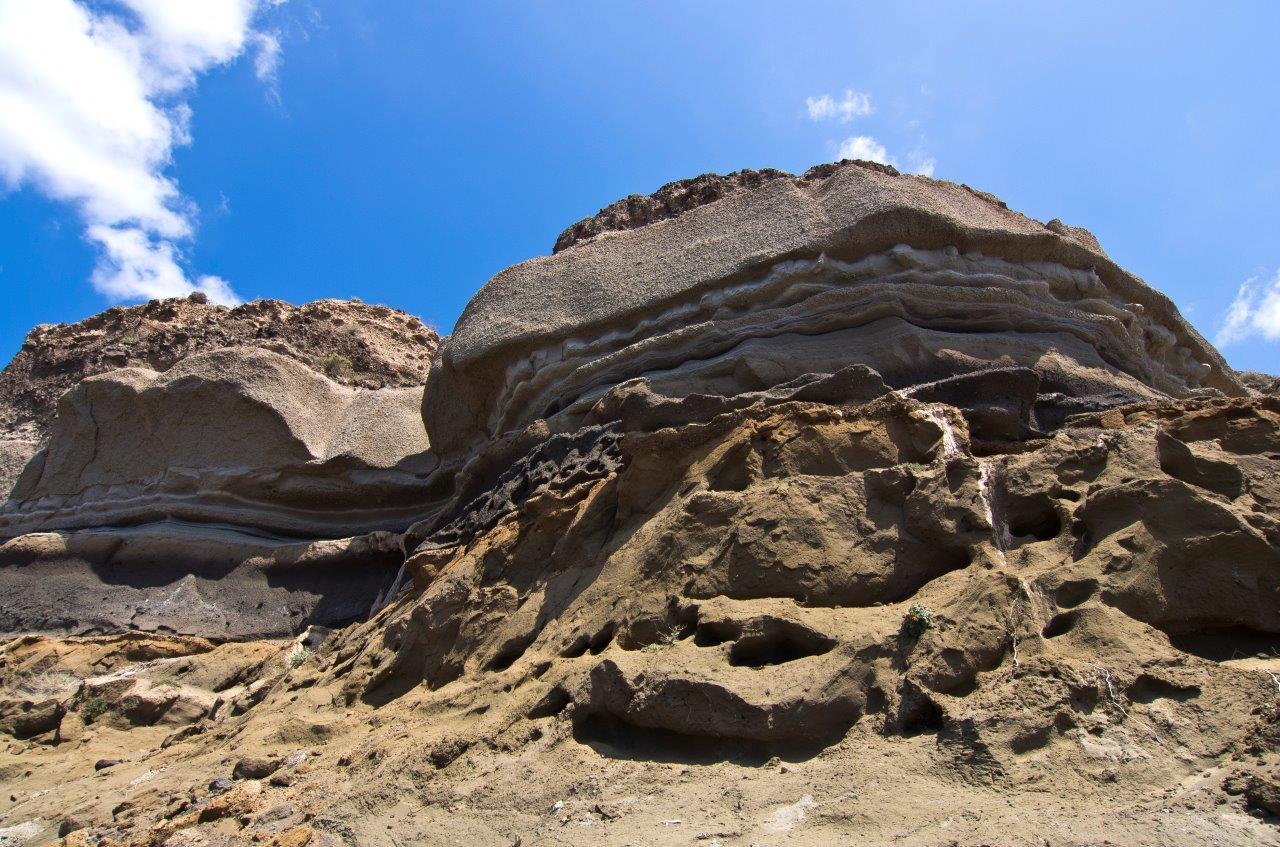Ηφαιστειακή Κληρονομιά


Volcanic Soil
As a result of one of the greatest volcanic eruptions of all time, Santorini’s strong agricultural tradition is rooted in its soil which has a unique texture and includes lava, volcanic ash and pumice stone. This special composition yields products of distinctive profile and works as a natural shield from diseases. The vineyard in Santorini is self-rooted as it was never affected by phylloxera, and is one of the most ancient in the world with a 3,500-year history.
Dry Farming
Plants on Santorini are not irrigated artificially and rainfall is rare on the island. Therefore, the watering comes from the natural humidity and the sea mist which is absorbed by the volcanic soil, providing the necessary hydration. This method, known as dry farming, results in a low-yield production that creates unique, flavorful and concentrated fava, tomatoes and grapes.
Manual work
From sowing and pruning to harvesting, all of the work in the fields is done by hand. In areas of severe slope, the farmers have created terraces, built with lava stones, known as “pezoules” in order to provide easier access to the vineyards, to facilitate the cultivation and to maximize their capacity to absorb rain water. In the vineyards, the vintners have invented a distinct way of training the vines, called “kouloura”. The vines are kept close to the ground and are given a spiral, basket shape that anchors the grapes and protects them from the strong winds. The vineyard of Santorini,.
Volcanic Soil
As a result of one of the greatest volcanic eruptions of all time, Santorini’s strong agricultural tradition is rooted in its soil which has a unique texture and includes lava, volcanic ash and pumice stone. This special composition yields products of distinctive profile and works as a natural shield from diseases. The vineyard in Santorini is self-rooted as it was never affected by phylloxera, and is one of the most ancient in the world with a 3,500-year history.
Dry Farming
Plants on Santorini are not irrigated artificially and rainfall is rare on the island. Therefore, the watering comes from the natural humidity and the sea mist which is absorbed by the volcanic soil, providing the necessary hydration. This method, known as dry farming, results in a low-yield production that creates unique, flavorful and concentrated fava, tomatoes and grapes.
Manual work
From sowing and pruning to harvesting, all of the work in the fields is done by hand. In areas of severe slope, the farmers have created terraces, built with lava stones, known as “pezoules” in order to provide easier access to the vineyards, to facilitate the cultivation and to maximize their capacity to absorb rain water. In the vineyards, the vintners have invented a distinct way of training the vines, called “kouloura”. The vines are kept close to the ground and are given a spiral, basket shape that anchors the grapes and protects them from the strong winds. The vineyard of Santorini,.









